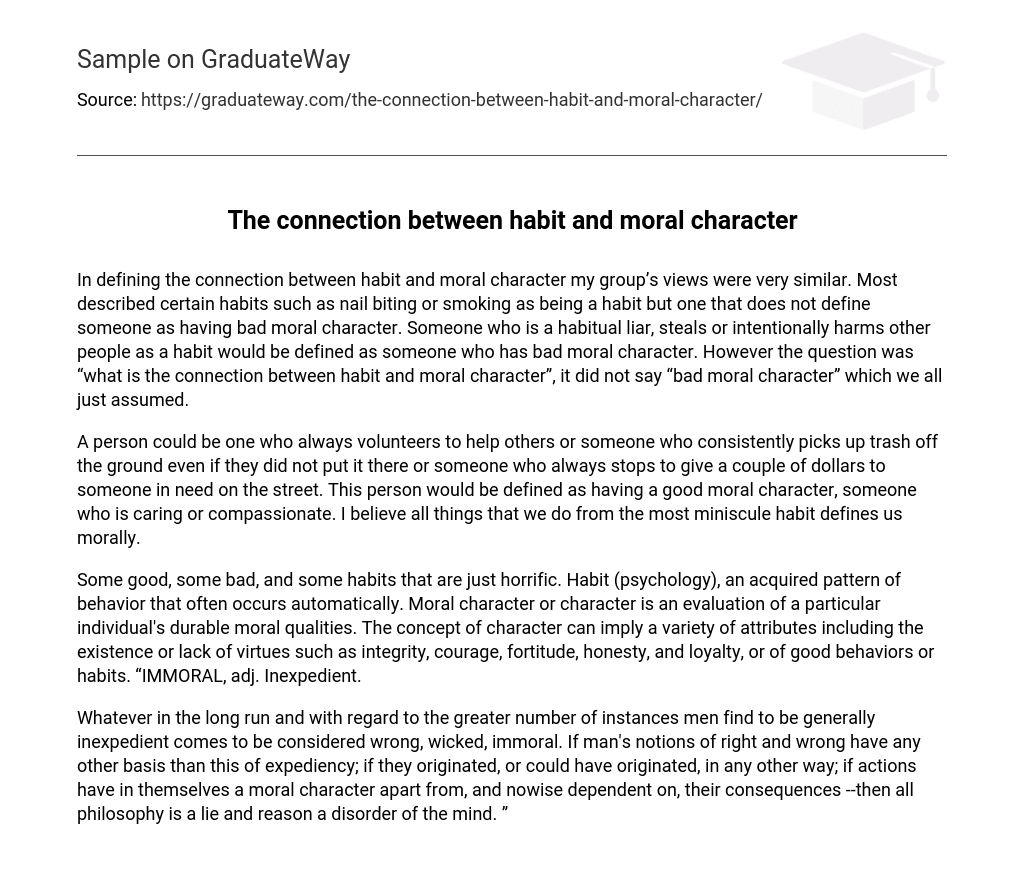The connection between habit and moral character was viewed similarly within my group. While certain habits such as nail biting or smoking were acknowledged as habits, they were not regarded as indicative of having bad moral character. Conversely, individuals who engage in constant lying, stealing, or intentional harm to others were seen as possessing bad moral character because of their habits. However, it should be noted that the inquiry centered on the relationship between habit and moral character without explicitly specifying “bad” moral character, which we all presumed.
Volunteering to help others, picking up trash, and providing financial assistance to those in need are consistent acts that define a person’s moral character. These actions demonstrate qualities like compassion and care, which are the basis of good moral character. In my viewpoint, even the tiniest habits contribute to shaping our moral identity.
There are various types of habits – good, bad, and extremely awful. Habits are patterns of behavior that are often automatic, according to psychology. Character refers to the evaluation of a person’s enduring moral qualities. It can include different attributes like integrity, courage, fortitude, honesty, and loyalty or the display of good behaviors and habits. An immoral individual is someone who acts in an inadvisable or expedient manner.
Men commonly deem anything that is generally found to be unwise in the long term and in most cases as being morally incorrect, evil, and unethical. If mankind’s notions of morality do not solely rely on what is advantageous, if they were not initially derived or could have been derived from any other means, and if actions possess an inherent moral essence regardless of their outcomes, then all philosophy is false and reason can be considered a form of mental illness.





